The profiles are arranged alphabetically by their last name.
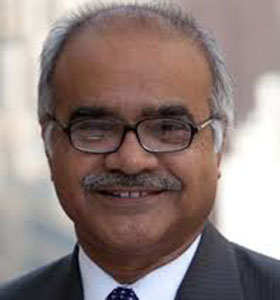
Dr Selim Jahan
Former Director
UNDP’s Human Development Report Office
UNDP
Dr. Selim Jahan is the former Director of UNDP’s Human Development Report Office, UNDP in New York. He served during 2006-2007 as the Cluster Leader, Strategies and Policies for Poverty Reduction, Bureau for Development Policy (BDP). Between 2001 and 2006, he was the Senior Adviser, Employment for Poverty Reduction in BDP. Dr. Jahan led UNDP’s work on poverty and inequality, inclusive growth, inclusive globalization and the Millennium Development Goals (MDGs), and oversaw the work of the International Policy Centre on Inclusive Growth (IPC-IG) in Brasilia. His research interest includes inclusive growth, inequality, food security, employment for poverty reduction and economic governance. Dr. Jahan served as the Deputy Director of the Human Development Report Office (HDRO) for five years (1996-2001). He was also a Policy Advisor in HDRO during the period (1992-1996). During his time in HDRO, he was a member of the Core Team that authored nine global Human Development Reports (1993-2001). He was also involved in the Core Team of a number of National Human Development Reports (NHDRs), including the first NHDR produced in his own country Bangladesh in 1991. Before joining UNDP in 1992, Dr. Jahan held different positions in universities, national governments and other international organizations. He was a Lecturer of Economics (1974-77) and Professor of Economics and Director of the Economic Research Unit, University of Dhaka, Bangladesh (1984-89). He was a Lecturer, Department of Economics, McGill University, Montreal, Canada (1983-84), a Visiting Fellow, Cambridge University, U.K. (1987-88), and a Visiting Scholar, School Of Public Policy, University of Maryland, College Park U.S.A (1992). Dr. Jahan served as an Economic Adviser, USAID, Dhaka, Bangladesh (1988), and as the Economic Adviser, Planning Commission, Government of Bangladesh (1989-90). He has also worked as Adviser and Consultant to various international organizations including ILO, UNDP, UNESCO, and the World Bank during the 1980s and the early 1990s. Dr. Jahan served as a Member of the Financial Sector Reform Commission, Government of Bangladesh (1988), and the President’s Task Force on Macroeconomic Framework of Bangladesh (1991). He was the Secretary General of the Bangladesh Economics Association (1991-92). Dr. Jahan holds a PhD in Economics from McGill University, Montreal, Canada, where he was a Commonwealth Scholar (1977-82).
Dr Mia Mikic
Director
Trade, Investment and Innovation Division
United Nations ESCAP
Dr Mia Mikic is Director, Trade, Investment and innovation Division in United Nations ESCAP. She also coordinates the Asia-Pacific Research and Training Network on Trade (ARTNeT), an open network of research and academic institutions and think-tanks in the Asia-Pacific region and covering all key means of implementation of the Sustainable development Goals (more details on artnet.unescap.org). Previously, she was Professor of International Economics at the University of Zagreb, and Senior Lecturer at the University of Auckland. She is the author of International Trade (Macmillan, 1998), co-author of Trade Statistics in Policymaking – A handbook of commonly used trade indices and indicators (United Nations, 2009), journal and technical papers, and has edited or co-edited several volumes, most recently with Bruno Jetin, ASEAN Economic Community- A model for Asia-wide regional integration? (Palgrave, 2016). She led a development of the Asia-Pacific Trade and Investment Agreements Database of ESCAP which monitors trade performance of the trade agreements for the regional economies. She oversees preparation of Asia-Pacific Trade and Investment Report, a flagship publication of ESCAP in area of trade and investment. Her current work focuses on the impacts of preferential and multilateral trade liberalization, services trade liberalization, non-tariff protection, frontier technologies use for inclusive future of work, and evidence-based policymaking in trade, investment and innovation. She has Masters in International Business from the St. Mary’s College of California and a Doctorate in Economics from the University of Zagreb. E-mail: mikic@un.org.
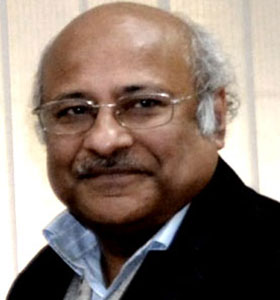
Professor S. R. Osmani
Professor of Development Economics
Ulster University, United Kingdom
Professor S. R. Osmani is Professor of Development Economics at Ulster University in the United Kingdom and Visiting Professor at BRAC University, Dhaka. He obtained PhD in economics from the London School of Economics and Political Science, and worked at the Bangladesh Institute of Development Studies, Dhaka and the World Institute for Development Economics Research, Helsinki, before joining Ulster University. He has published widely on issues related to poverty, inequality, hunger, famine, nutrition, microcredit, rights-based approach to development, and development problems in general His publications include Economic Inequality and Group Welfare; Nutrition and Poverty; Macroeconomics of Poverty Reduction: The Case Study of Bangladesh; Poverty and Vulnerability in Rural Bangladesh and Theory and Practice of Microcredit.
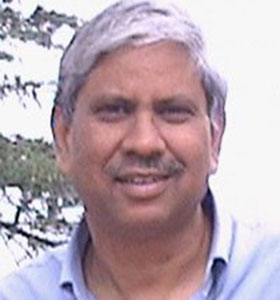
Professor Ravi S. Srivastava
Former Professor of Economics & Chairperson
for the Study of Regional Development
Jawaharlal Nehru University, New Delhi, India
Professor Ravi Srivastava is former Professor of Economics and Chairperson, Centre for the Study of Regional Development, Jawaharlal Nehru University, New Delhi and full-time Member of the National Commission for Enterprises in the Unorganised Sector (NCEUS), chaired by late Dr. Arjun Sengupta, in the rank of Secretary, Government of India (2006-09). He received his education in the University of Allahabad, the Delhi School of Economics Jawaharlal Nehru University, University of Cambridge, UK. His main areas of research and publication include labour and employment, migration, social protection, agriculture, rural development and rural poverty, the informal sector, regional development, decentralization, human development, and land reforms. He has published five books, four monographs, more than one hundred papers in national and international journals, and has produced thirty-five research reports and has carried out more than twenty-five major research projects sponsored by agencies such as UNICEF, ILO, The World Bank, ESRC (UK), University Grants Commission, Indian Council for Social Science Research, Shastri Indo-Canadian Foundation and others. He is a recipient of numerous awards and scholarships including the Commonwealth and the Fulbright Fellowship; the University Grant Commission’s award in economics (2001) for innovative research on poverty, combining qualitative and quantitative methodologies; and more recently, the V. V. Giri Memorial Award (2009) for contribution to research on labour migration. He is currently Chairman of the Institute of Development Studies, Jaipur and Professor and Director, Centre for Employment Studies, Institute for Human Development. He has been member and chairperson of a number of committees of the University Grants Commission, MHRD, Planning Commission, and the ICSSR. Member of the ICSSR Governing Council for two terms between 2005 and 2011 and member of its Research Committee till 2017. He is Member, Governing Board, Institute of Human Development, Delhi, and of the Academic Council, Tata Institute of Social Sciences, He has performed consultancy and advisory roles for the Planning Commission, Indian Ministries, State governments; International Agencies such as the World Bank, ILO, ADB, UNDP, UNICEF, UNESCO, IFAD, FAO, JBIC, DFID and SIDA; and numerous other governmental and non-governmental agencies. He is past President of the Indian Society of Labour Economics and current President of the UP and Uttarakhand Economics Association.
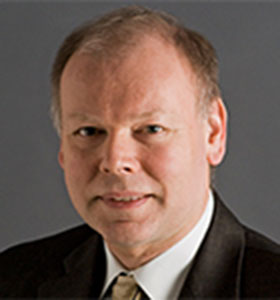
Dr Hans Timmer
Chief Economist, South Asia Region
The World Bank
Dr Hans Timmer is the Chief Economist for the South Asia region of the World Bank. He assumed this position on January 1, 2019. Before that, he was the Chief Economist for the Europe and Central Asia region of the World Bank. Under his management in ECA, a series of regional reports, most recently, Toward a New Social Contract and Critical Connections, and a series of regional economic updates are produced. Prior to these positions, Mr. Timmer was Director of the World Bank's Development Prospects Group. Mr. Timmer is a quantitative international macroeconomist and econometrician with 30 years of management experience in leading teams of modelers, forecasters, and policy analysts. His experience ranges from long-term structural analyses of the economic impact of environmental policies, trade policies, and tax reforms, to short-term monitoring of the business cycle and analysis of monetary and fiscal policies. Before joining the World Bank in 2000, Mr. Timmer was head of international economic analysis at the Central Planning Bureau in the Netherlands. In this role, he oversaw global scenario studies and supervised the development of two world models. He has vast experience working with the European Commission, Intergovernmental Panel on Climate Change (IPCC), and the Organization for Economic Co-operation and Development (OECD), as well as with the Indian Planning Commission and the Chinese Academy of Social Sciences. He holds a Master’s degree in econometrics from Erasmus University in Rotterdam, and was a researcher at the University of Lodz in Poland and at the Netherlands Economic Institute.
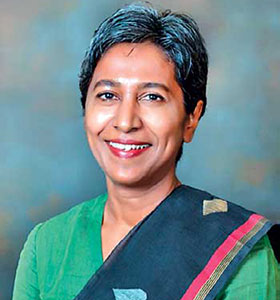
Dr Dushni Weerakoon
Executive Director
Institute of Policy Studies of Sri Lanka
Dr Dushni Weerakoon is the Executive Director of the Institute of Policy Studies of Sri Lanka (IPS) and Head of its Macroeconomic Policy research. She joined IPS in 1994 after obtaining her PhD, and has written and published widely on macroeconomic policy, regional trade integration and international economics. She has extensive experience in public policy engagement having served the Government of Sri Lanka as an Appointed Member of the Monetary Board of the Central Bank of Sri Lanka, Trade and Productivity Commission, Committee on Trade Policy Formulation, Trade and Tariff Committee, Committee of Experts to negotiate the South Asian Free Trade Agreement, Macro and Trade Policy Steering Committee, amongst others. She has worked as a consultant to international organisations such as the World Bank, ADB, UN-ESCAP, UNDP and ILO, and served as a resource person on the Asia-Pacific Regional Trade Policy Course conducted by the World Trade Organisation (WTO) and University of Hong Kong. She serves currently as a Series Editor of the South Asia Economic and Policy Studies for Springer publications, Editors-in-Chief of the South Asia Economic Journal, Editorial Board of the Journal of South Asian Development, and as Editor of the IPS’ annual flagship report ‘Sri Lanka: State of the Economy’. She has experience as a director on the boards of corporate and academic entities, including as an Independent Non-Executive Director at the Nations Trust Bank and Cargills Bank, and as a Director at the Centre for Poverty Analysis, the Gamani Corea Foundation, and the Social Policy Analysis and Research Centre (SPARC) of the University of Colombo. Dushni Weerakoon holds a BSc in Economics with First Class Honours from the Queen’s University of Belfast, U.K., and an MA and PhD in Economics from the University of Manchester, U.K. She is a recipient of the Arts Faculty Scholarship from the University of Colombo, the McKane Medal and Scholarship from the Queen’s University of Belfast, a Postgraduate Scholarship from the University of Manchester, an Overseas Research Scholarship from the Government of the UK, and the Drummond Frazer Research Studentship from the University of Manchester.
